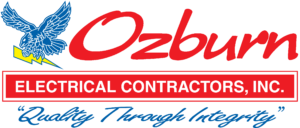Designed by Freepik
Electrical malfunctions can be both hassle and dangerous if not responded to immediately. Home owners often take early signs of electrical malfunction lightly, attributing them to minor inconveniences. However, some warning signs such as flickering lights, flipped circuit breakers, and non-functional outlet may be a sign of a potential problem that needs professional oversight. If you are around Covington, know these symptoms so you will have the best electrician for your home before minor issues become hazardous.
Flickering or Dimming Lights
Flickering lights and bright spots are common symptoms of a problem in a home’s electrical system. These might be due to an overloaded circuit or even a loose connection in the electrical wiring system. If your lights flicker when you turn on an appliance, it could be that the circuit cannot handle the load. It could also be a faulty light fixture or wiring that needs repair. Either way, it’s a sign that something isn’t working properly, and it’s wise to have an electrician inspect your system.
Though flickering may occur as an appliance first comes on, persistent dimming and flickering is a warning sign. Never shrug this off, however, as it could lead to more serious electrical failure, even electrical fires. Calling a licensed Covington electrician should help head off further issues.
Tripped Circuit Breakers
Circuit breakers are designed to protect your home by shutting off power to a circuit when it’s overloaded. If your circuit breakers frequently trip, it could be a sign that your home’s electrical system is stressed. Tripped breakers may result from overloading, but they can also indicate more serious issues like faulty wiring, outdated electrical panels, or short circuits.
If a breaker occasionally trips, then it is nothing to worry about. But if you feel that circuit breakers are constantly tripping, then you should seek professional help. An experienced Covington electrician can identify whether the problem lies in the breaker panel or in the wiring and power supply. Left unchecked, frequent tripping could be dangerous. A certified electrician can properly address the problem safely.
Outlets That Don’t Work
Non-functional outlets are another sign which may point to the source of an electrical problem. If you plug something in and it doesn’t work, it may be a simple blown fuse or tripped breaker, but if it is consistently non-functional even after checking these components, the problem could be more serious. It may point to faulty wiring, damage to the outlet, or a larger issue in your electrical system.
Homeowners should never attempt to fix faulty outlets on their own unless they are familiar with working with electricity. Electrical components can easily cause shocks or fires when handled improperly. Instead, homeowners should call a qualified Covington electrician who can identify the problem and make the necessary repairs safely.
Burning Smell or Sparks
Another critical sign of a potential hazard is a burning smell or sparks in an outlet or from an appliance. If you see this, you need to shut off power immediately and call an electrician. The smell of burning usually implies overheating or burnt insulation, which may flare into electrical fires unless it is dealt with promptly. Sparks or arcing at an outlet are also risky since they may sometimes indicate short circuits or wiring that is exposed.
All such issues should never be left unattended. An expert electrician in Covington can identify the source and take necessary measures to mend it without causing much damage or endangering safety.
Electrical issues can get severe from minor inconveniences to major safety concerns unless redressed timely. Homeowners in Covington must watch out for symptoms such as dim lights, tripped circuit breakers, dysfunctional outlets, and burning smells. Once a problem arises, it is always best to call a professional electrician to come in and evaluate the situation and make necessary repairs. In doing so, homeowners ensure that their home and family are safe from electrical hazards.

